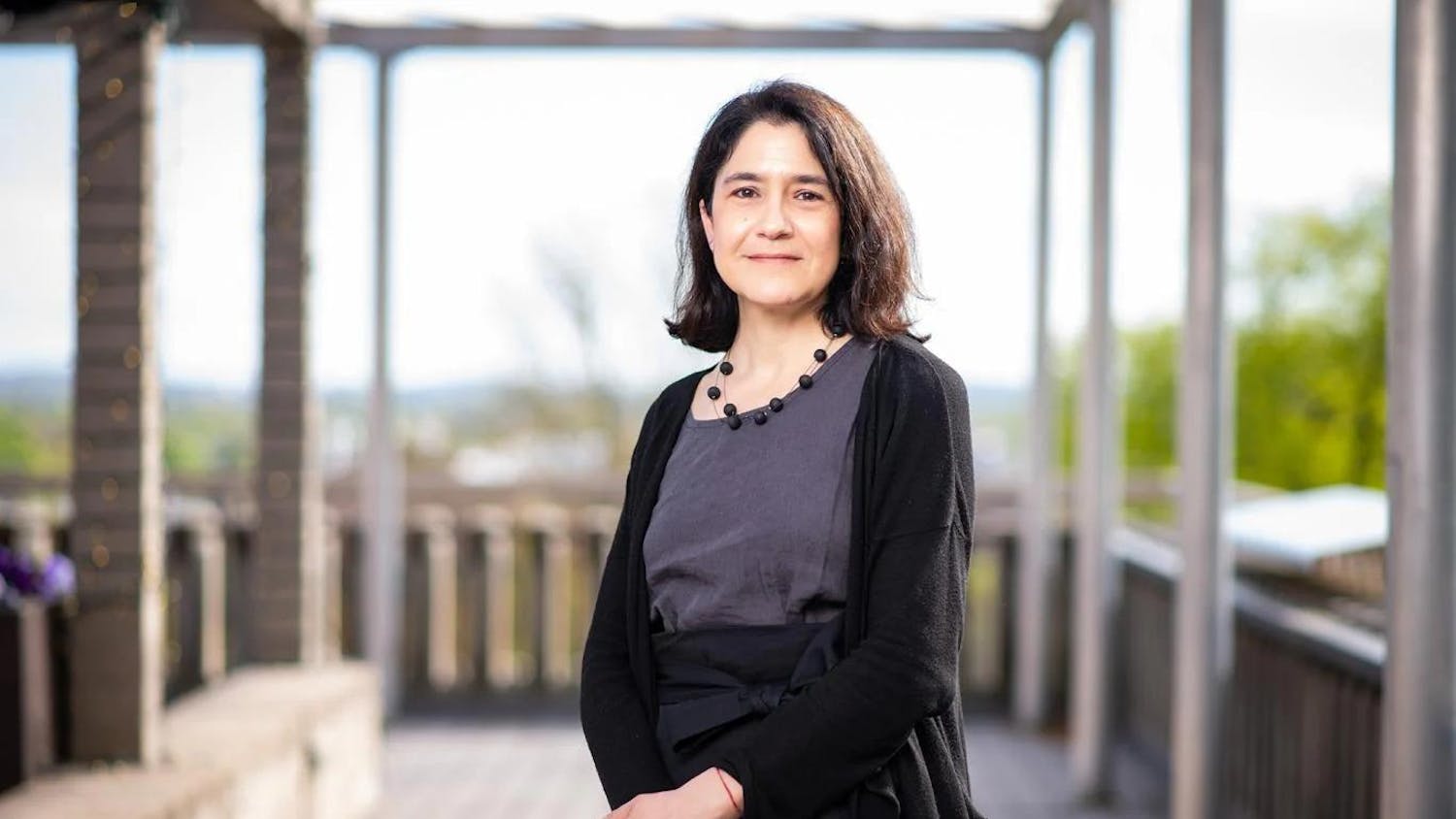The symposium concluded on Sunday afternoon with a final discussion panel, "Post-Conflict Challenges and Building Peaceful Societies."
UNICEF's Chief of Child Protection Susan Bissell was presented with a Dr. Jean Mayer Global Citizenship Award and opened the panel by outlining the difficulties faced by children in zones of conflict.
"These are the best and worst of times for UNICEF," Bissell said. "The rates of violence may be declining, but the effects of that decline are inequitably distributed."
EPIIC Colloquium Member Rachael Alldian, a senior, moderated the panel.
Foreign nations have an obligation to investigate conflicts related to child abuse, punish those responsible for abusing children during times of war and follow through with a series of community reconciliation efforts, Bissell said.
"A strengthening in the international framework and jurisdiction system is what we need to create a real and lasting difference in these regions," she said.
Alex de Waal, executive director of the World Peace Foundation at The Fletcher School of Law and Diplomacy, commented on how often the end of war is falsely interpreted as the end to violence.
De Waal argued that people in postwar regions can be harmed by enduring political tensions and fraudulent election systems even after the physical conflict has ended.
"We often underestimate the time it takes to transition to a stable political institution after the trauma of an armed conflict, as well as the enormous resources it takes for peoples' lives to be normalized and for them to be gainfully employed," de Waal said.
Sahana Dharmapuri, a fellow at Harvard University's Carr Center for Human Rights Policy, discussed the need to achieve gender equality in order to successfully restore war-torn areas.
"Women are disproportionately affected by conflicts, due to sexual and gender-based violence, which is used as a tactic of war to destabilize communities and economies and claim territory," Dharmapuri said.
Professor Emeritus of Psychology at the University of Massachusetts at Amherst Ervin Staub said violence and hostility often endure in areas that have just experienced war because the different sides rarely make a significant effort to reconcile or to understand each others' motives, he said. He emphasized the need to achieve contact with all groups of survivors from recent conflicts and to provide them with necessary resources and job opportunities.
"When a society helps all of its members fulfill its basic needs constructively, it is likely to be pacifist," Staub said.
President of Women for Women International Zainab Salbi, another recipient of this year's Dr. Jean Mayer Award, also believes in the need to interact with the people of a postwar region in order to bring them peace.
Like previous speakers, Salbi agreed that civilians are now increasingly at risk during the outbreak of a war and that women have been especially poorly impacted.
"With men out on the front line, it is women who are responsible for carrying on life during a time of war," she said. "Yet only 2.2 percent of postwar peace agreements have ever included a woman."





